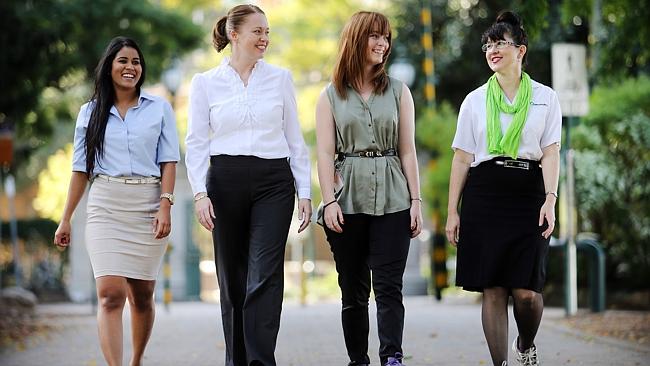Queensland Health’s latest anti-obesity campaign addresses the “health age” of people. Are you eating yourself to an early grave?
PHYSICAL inactivity has become the greatest health risk factor for women over 30 – posing more of a threat than smoking, obesity and high blood pressure.
Research to be released today by the University of Queensland will show that women who don’t exercise are at the greatest risk of heart disease, Australia’s biggest killer.
BAD ADVICE: Pregnant women eating too much
The health of more than 32,000 Australian women was tracked to compile the research, published in the British Journal of Sports Medicine.
University of Queensland research professor Wendy Brown said the research showed women needed to move more.
“Continuing efforts to encourage people to stop smoking are warranted, but much more emphasis should be placed on physical inactivity,” she said.
“If all over-30s followed recommended daily exercise guidelines – 150 minutes of at least moderate intensity physical activity – the lives of more than 2600 middle-aged and older women could be saved each year in Australia alone.’’
The study is one of the first in developed countries to look at how inactivity affects adult women. It found women’s risk factors for heart disease changed throughout their lives, with smoking having the greatest impact below 30.
Queenslanders Credit Union has introduced several initiatives to help keep their staff healthy, including free lunchtime yoga classes and provision of fresh fruit.

Female staff of Queensland Credit Union, which has introduced several health initiatives, Amita Nand, 24, Amanda Webb, 39, Ashleigh Ohlsen, 21, and Robyn Crapnell, 49. Pic: Tara Croser
Ashleigh Ohlsen, 21, said her employer was very supportive of her attending gym classes during work hours and going for walks during her tea breaks.
“I always try to keep moving and walk out to our girls in the branch, rather than giving them a call – I don’t want to be sitting down all day,’’ she said.
Amanda Webb, 39, said she went to yoga once a week and tried to walk 5km several times a week.
UQ research fellow and co-author Dr Toby Pavey said public health campaigns needed a greater focus on physical activity.
“At the population level, inactivity is the biggest risk factor yet appears to be ignored by the people who make the decisions,’’ he said.
“When you think of the millions spent on smoking cessation, hypertension, pharmaceuticals, we need to promote physical activity.’’
Dr Pavey said the low levels of physical inactivity in women over 30 could be due to women starting their families later in life. The demands of small children were now falling later.
Qld Health’s latest anti-obesity campaign addresses the “health age” of people. Are you eating yourself to an early grave?
